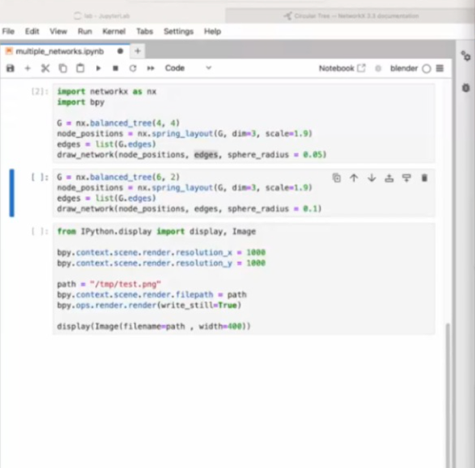Data visualisation using Blender within Jupyter notebooks
by
In collaboration between the BE and IT departments, we welcome Jan-Hendrik Müller an enthusiast of open source and data visualisation visiting CERN this week.
Abstract:
Python notebooks are the standard tool for data analysis, while Blender is a popular tool for 3D visualisation, with tools for shaping models, adding textures, and creating realistic light effects.
In this talk, we’ll explore how Jupyter’s cell-based code execution enables iterative workflows for crafting data-driven visualizations in Blender. Using a geospatial dataset as an example, we’ll demonstrate how a Polars DataFrame in Jupyter can dynamically update Blender shapes in real time.
We’ll cover techniques for embedding and manipulating DataFrame values within the vertices of 3D objects and further processing this data using Blender’s Geometry Nodes and Shader Nodes systems for advanced geometrical operations.
To wrap up, we’ll take a brief look at the “uv” package manager and show how it simplifies the development process



Philip Elson - BE Department
